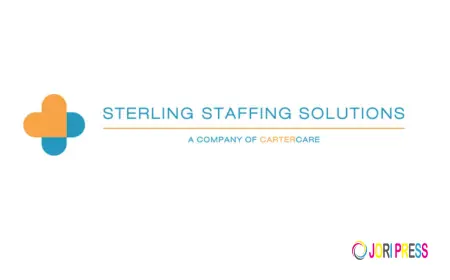Unlocking Employee Potential Through Culture Intelligence
Discover how culture intelligence can unlock employee potential, boost engagement, and drive organizational success through smarter leadership and data-driven insights.
In today's hyper-competitive business world, unlocking the full potential of your workforce is no longer a nice-to-have — it’s a necessity. Organizations that outperform their competitors have one thing in common: a thriving, engaged culture. But how do you measure and nurture that culture effectively? This is where Culture Intelligence comes in — a data-driven, strategic approach to understanding and shaping workplace behaviors, attitudes, and values.
A critical entry point into this journey is the Employee Engagement Survey. Traditionally seen as a check-the-box HR exercise, modern engagement surveys are evolving into intelligent tools that offer real-time insights into employee sentiment, motivation, and alignment with company values. These surveys, when properly designed and acted upon, provide a baseline understanding of where your culture stands and where it needs to go.
The Culture Intelligence Imperative
Culture intelligence combines technology, behavioral science, and organizational development to provide leaders with actionable data about their workplace environment. It answers crucial questions:
-
Are employees aligned with the organization's mission?
-
Are leadership styles empowering or hindering growth?
-
How do team dynamics influence performance and morale?
Culture is often described as “what people do when no one is watching.” Culture intelligence makes the invisible visible, allowing companies to see patterns, surface blind spots, and preempt cultural risks before they impact performance or retention.
Why Culture Is the New Corporate Currency
Decades of research — from Gallup, Deloitte, and McKinsey — have shown that high-performing cultures correlate with increased innovation, productivity, and profitability. Companies that actively manage their culture are:
-
3x more likely to be high-performing
-
2.5x more likely to retain top talent
-
1.8x more likely to show higher revenue growth
But culture cannot be enforced; it must be cultivated. Employees respond to environments that support psychological safety, diversity of thought, recognition, and continuous learning.
Turning Culture into a Competitive Advantage
So, how does one go from culture awareness to culture mastery?
-
Measure what matters: Use smart tools like AI-powered sentiment analysis, engagement heatmaps, and cultural alignment indexes.
-
Diagnose root causes: Is disengagement due to poor management, lack of recognition, unclear growth paths, or something deeper?
-
Design targeted interventions: These can include microlearning, coaching, new recognition systems, and team-based experiments.
-
Track and iterate: Culture is not static. Constant feedback loops ensure the organization remains agile and aligned.
The Role of Leadership in Culture Shaping
Leadership is the single most influential factor in shaping workplace culture. The behaviors, language, and values demonstrated by leaders set the tone for everyone else. This is where Leadership development programs become essential.
Traditional training often focuses on technical or operational skills, but modern leadership development is rooted in emotional intelligence, cultural sensitivity, and coaching mindset. These programs help leaders:
-
Build trust across diverse teams
-
Model resilience and empathy
-
Lead through ambiguity and change
-
Deliver consistent feedback and recognition
By embedding culture intelligence into leadership development programs, organizations can ensure that leaders are not just managing people but actively shaping a high-performance, values-driven culture.
Empowering Middle Management
Often called the "frozen middle," mid-level managers are a vital — and often overlooked — layer in culture transformation. While executives craft the vision and frontline employees feel the pulse, it’s the middle managers who operationalize values, resolve conflicts, and maintain engagement levels day-to-day.
Equipping this group with culture dashboards, coaching tools, and real-time feedback systems creates a ripple effect throughout the organization. When middle managers are culturally intelligent, employee engagement improves across the board.
From Insights to Action
Gathering culture data is only the beginning. The true power of culture intelligence lies in how it’s used. Imagine this scenario:
-
An employee engagement survey reveals low morale in a particular department.
-
Real-time sentiment analysis detects communication breakdowns.
-
A culture intelligence platform correlates this with poor peer recognition.
-
Targeted interventions are deployed: peer reward systems, coaching, and feedback loops.
-
Follow-up data shows a 30% increase in team satisfaction within three months.
This is the power of turning insights into impact.
Diversity, Equity, and Inclusion (DEI) as Cultural Cornerstones
An inclusive culture doesn’t happen by accident. Culture intelligence helps organizations go beyond metrics like representation and focus on lived experiences. Are all voices heard? Are opportunities equitably distributed? Do underrepresented groups feel a sense of belonging?
Advanced culture platforms now use DEI analytics to surface hidden bias, monitor microaggressions, and identify systemic barriers — allowing leaders to respond with targeted education, inclusive policies, and resource group support.
Recognition and Reward as Cultural Levers
Recognition isn’t just about bonuses or praise — it’s about validating the behaviors you want to see more of. Culture intelligence platforms often include recognition tools that tie employee actions to core company values.
For example, when someone collaborates cross-functionally or mentors a junior colleague, the system can nudge managers to acknowledge that behavior in real-time. Over time, this builds a strong feedback-rich culture where people feel seen and valued.
Culture Is Everyone’s Job
While leadership sets the tone, and HR provides the structure, culture must be owned by everyone. Each employee contributes to — and is shaped by — the culture around them. When employees are given tools to reflect on their own alignment, communicate their needs, and co-create workplace norms, they become stewards of culture themselves.
Culture intelligence platforms democratize data, offering personalized nudges, goal tracking, and values-based alignment tools at every level of the organization.
The Future of Culture Intelligence
As AI, analytics, and behavioral science continue to evolve, culture intelligence will become even more precise, predictive, and personalized. Imagine systems that can forecast attrition risks, suggest team pairings based on cognitive diversity, or deliver personalized leadership prompts before critical meetings.
We’re entering an era where culture is not only tracked but shaped in real-time — where organizations don’t just respond to issues but anticipate and prevent them. The companies that will win tomorrow are already investing in culture today.
Final Thoughts
Unlocking employee potential is not a one-time initiative — it's an ongoing journey that requires commitment, technology, and a mindset shift. With Culture Intelligence, organizations can finally put data behind the most powerful driver of success: people. From launching an effective Employee Engagement Survey, the tools to create lasting cultural transformation are now within reach.
In a world of uncertainty, one thing is clear: culture is no longer soft. It's strategic. And it’s the key to unlocking a high-performing, engaged, and future-ready workforce.
What's Your Reaction?
 Like
0
Like
0
 Dislike
0
Dislike
0
 Love
0
Love
0
 Funny
0
Funny
0
 Angry
0
Angry
0
 Sad
0
Sad
0
 Wow
0
Wow
0

















































